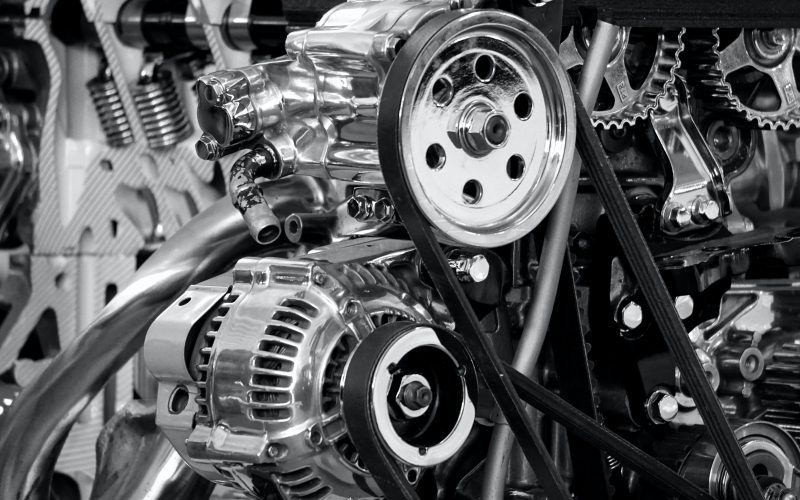Europe’s automotive industry has been at the forefront of a technological revolution. Automakers in the continent are currently pushing for the adoption of electric vehicles, which is revolutionizing the car industry and becoming increasingly popular with consumers. However, this shift away from traditional gasoline-powered automobiles has placed Europe’s autoworkers in a difficult position. With electric vehicles requiring fewer parts and being simpler to manufacture, many auto workers are facing job losses as manufacturers look to streamline their production processes in response to customer demands. In this blog post, we’ll be exploring how Europe’s autoworkers are dealing with the impacts of EV adoption, and what can be done to help them survive these challenging times.
The push for electric vehicles in Europe
Europe’s carmakers are under pressure to accelerate the shift to electric vehicles (EVs), as the European Union (EU) looks to meet its climate targets. But this transition is proving difficult for the continent’s auto workers, who are facing job losses and plant closures.
The push towards EVs is being driven by stricter emissions regulations, which come into effect in 2020. To meet these new standards, carmakers must reduce their fleet’s average CO2 emissions to 95 grams per kilometer (g/km).
Currently, the average CO2 emissions of new cars sold in Europe is 130 g/km. In order to meet the target, carmakers will need to increase their sales of EVs. This is a challenge, as EVs currently make up just 3% of new car sales in Europe.
To increase EV sales, carmakers are offering incentives such as discounts and free charging points. They are also investing in infrastructure, such as building more charging stations.
However, the transition to EVs is not happening fast enough for the EU. In order to meet its climate targets, the EU wants 30% of all new cars sold to be EVs by 2030. This means that carmakers will need to do more to encourage consumers to switch to EVs.
The shift to EVs is having a major impact on Europe’s auto industry. Jobs are being lost as plants that make traditional combustion engine cars are closed down or converted to make
The uphill battle facing autoworkers
The auto industry is at a crossroads as it faces pressure to adopt electric vehicles in the wake of increasing regulation and public scrutiny over emissions. This shift presents a daunting challenge for autoworkers, who must adapt to new technologies and processes while also dealing with the threat of job losses.
In recent years, a number of automakers have announced plans to electrify their lineups, including some that have already begun the transition. This shift comes as governments around the world are increasingly cracking down on emissions from transportation, which is one of the largest sources of greenhouse gases.
The move to electric vehicles will require substantial changes in how automobiles are designed, manufactured, and powered. For autoworkers, this means learning new skills and working with different materials. It also raises the specter of job losses, as electric vehicles require far fewer components than gasoline-powered cars and thus can be assembled with fewer workers.
While there are challenges ahead, the auto industry has weathered disruptive changes before and there is reason to believe that it can do so again. With the right policies in place, autoworkers can be supported through this transition and positioned to thrive in the new economy.
What is being done to help autoworkers?
As the European Union looks to increase its adoption of electric vehicles, autoworkers are facing an uphill battle. Automakers are pushing for a faster transition to electric vehicles, which could mean fewer jobs for autoworkers. The EU is trying to help autoworkers by providing funding for retraining and re-skilling programs. The EU is also working on a plan to phase out petrol and diesel cars by 2030. This plan includes financial incentives for consumers to buy electric vehicles and investments in charging infrastructure.
The future of the automotive industry in Europe
The future of the automotive industry in Europe is under threat as automakers push for electric vehicle adoption. European carmakers have been slow to embrace electrification, and are now facing pressure from regulators to speed up the transition. The European Union has set a target of 30% of new cars sold being electric by 2030, and while some countries are on track to meet this goal, others are lagging behind.
Automakers are investing heavily in electric vehicle technology, and many new models are being introduced. However, sales of electric vehicles have been slow to take off, due to high prices and a lack of infrastructure. With battery prices falling and more charging points being installed, it is expected that sales will begin to increase.
There is a lot of uncertainty about the future of the automotive industry in Europe. However, it is clear that electrification is inevitable and that carmakers need to start making the transition now if they want to stay ahead of the curve.
Conclusion
Europe’s auto industry is undergoing a seismic shift as automakers push for electric vehicle adoption. This presents the autoworkers of Europe with an uphill battle, as they strive to adapt and stay relevant in the rapidly changing automotive landscape. As stakeholders seek solutions to this dilemma, it will be important to consider both their investments in transitioning factories and workforces, while also ensuring fair compensation for affected workers along the way. With careful planning and long-term vision, Europe stands to benefit from this transition as its autoworkers remain valued contributors in the workforce going forward.












